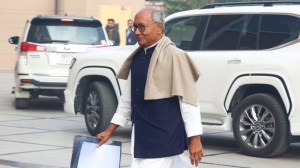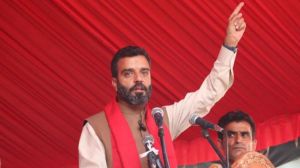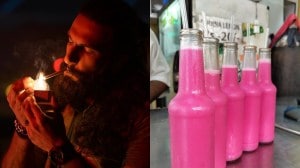Falling off the map
If further evidence is required that Bihar is slowly but inexorably falling off the map, it has been provided by the murder of two politicia...

If further evidence is required that Bihar is slowly but inexorably falling off the map, it has been provided by the murder of two politicians at the hands of unknown assailants within the span of just 18 hours. Former RJD minister Brij Bihari Prasad was killed on Saturday in Patna, then Ajit Sarkar, an MLA of the CPIM, fell victim to motorcycle-borne assassins in Purnea. Sarkar is the third MLA in the state to have been cruelly despatched thus. On February 23, just a day after the state had voted in the Lok Sabha elections, Devendra Dubey of the SJP was killed. Mindless brutality has become as much a part of the state8217;s popular culture, as the songs beamed over Akashvani that listeners in Jhumritalayya have grown to love.
Bullets disgorged from guns fashioned out of a bicycle8217;s metal innards have downed many innocents in the killing fields of West Champaran. The endless circle of retributive violence between the Ranbir Sena and ultra-left political formations in the countryside, played out with alarmingfrequency in obscure villages that nobody has ever heard of, has become the stuff of front page news. Then there were the cases of 35-year-old district magistrate of Gopalganj, G. Krishnaiah, killed by a mob in December 1994 and the idealistic student leader, Chandrashekhar Prasad, who was gunned down in the heart of Siwan town last March. There have, of course, been many reasons advanced for why this state more than any other has succumbed to the sway of the thug, the rapist, and the killer. Agrarian conflict is one reason, certainly, in a region marked by huge economic disparities between the land-owning class and the landless labourer. Caste conflict, clearly, in a land that has seen the unrelenting tyranny of the Brahmin and the Bhumihar for centuries. In an industrially barren region only one-hundredth of India8217;s total industrial investment proposed between August 1991 and March 1997, was earmarked for Bihar only land creates social and political worth.
But Bihar8217;s latest killings signifies somethingmore that political activity in the state could well become the politics of death. If this trend persists, political opposition in the state will not be a rationally conducted debate on the floor of the assembly but summary execution by masked killers riding in from the sunset. It means that only the very courageous or the very criminal will dare to enter the political arena. It means that, increasingly, criminals will come to power in the state touting a one-point manifesto: vote for us if you want to sleep soundly tonight.
What it will mean, in other words, is the complete fracturing of the democratic structures of the state8217;s civil society whatever that is left of them, of course. If this were to happen in a prosperous state, it would be a sad development. But when it happens in a state like Bihar, with the lowest per capita income in the country and the highest levels of illiteracy, it is a plain tragedy.
- 01
- 02
- 03
- 04
- 05































